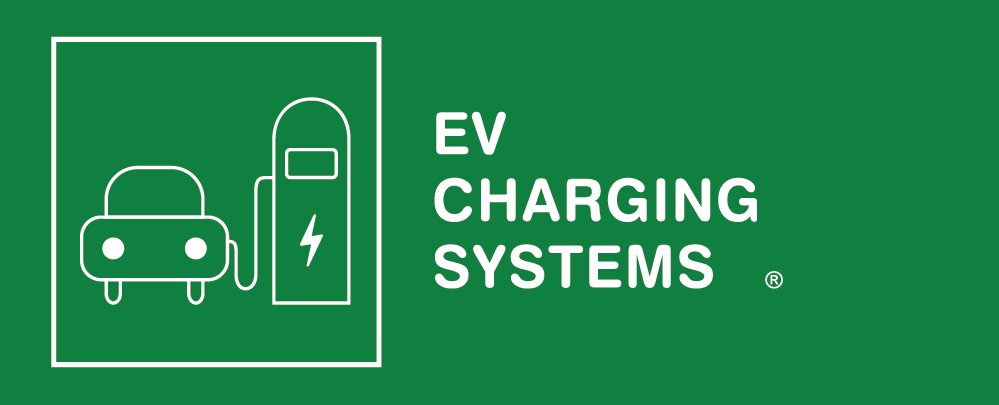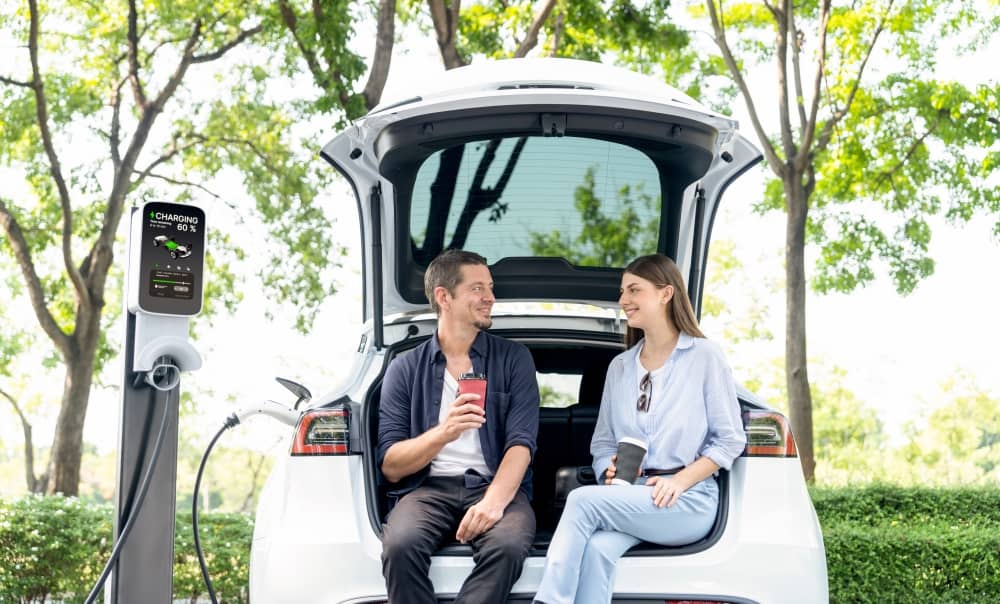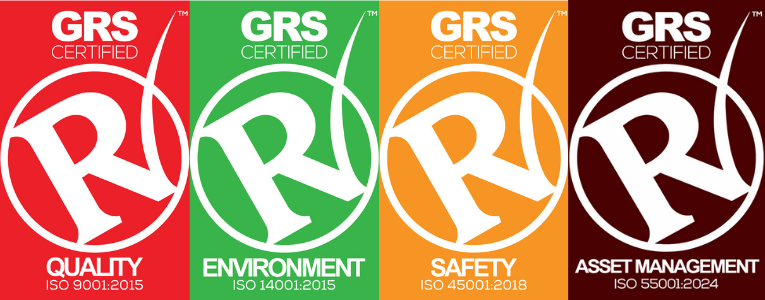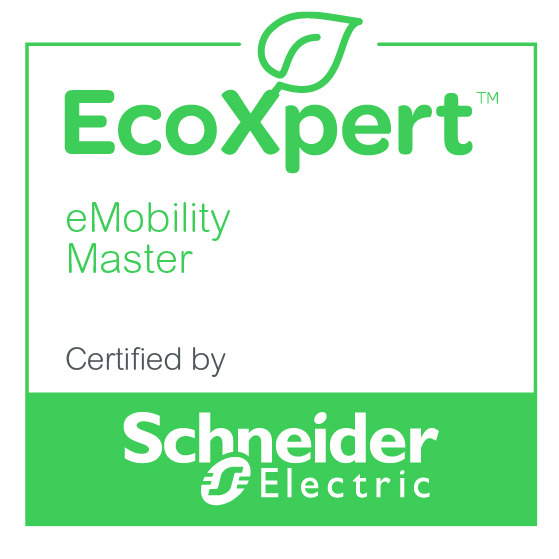There are many benefits of electric vehicles, but they do require extra planning when it comes to road trips.
Here are important tips and considerations when planning an electric vehicle road trip. By planning ahead, you can have the smoothest, safest EV road trip possible.
10 Tips for a Stress-Free EV Road Trip
Here are the 10 best tips for planning a stress-free road trip with your electric vehicle.
1. Download Charging Station Operator Apps
A successful electric vehicle road trip starts before you even leave. Before you go, it can be helpful to download charging station operator apps.
Pay-to-use charging stations often require an operator app. Remote areas in some regions can make it difficult to impossible to download these apps, making it important to download these apps before your trip.
2. Plan Your Route Carefully
Planning your EV charging route carefully is a crucial step for a successful electric vehicle road trip.
Although the government and various organisations are working to expand EV charging networks, many areas are still lacking adequate EV resources and infrastructure. It’s important to scope out your route carefully to ensure you set yourself up for success.
3. Have An Alternative Charging Route
Along with downloading charging station operator apps and planning your route carefully before you go, you’ll also want to determine an alternative charging route.
Having a backup route in place is key for handling unforeseen circumstances, out-of-service chargers, or other issues you may encounter on your trip.
4. Find Out If Your Accommodation Is EV-Friendly
With the growing popularity of electric vehicles, an increasing number of accommodations are offering EV charging stations and amenities.
Research your accommodations ahead of time so you can set up a backup charging plan if needed. You may even wish to book EV-friendly accommodations for the added convenience.
5. Bring Your Own Adaptor Cables
Make sure to have your own adaptor cables on hand to avoid arriving at a charging station that is not suited to your electric vehicle.
EV Charging Systems has Type 2 to Type 1 EV charging cables so you can charge at any station, even if your electric vehicle does not have a compatible plug.
6. Consider Charging Time
It is important to factor in charging time when planning your EV road trip. Electric vehicles take longer to charge compared to filling up a vehicle with an internal combustion engine. Electric vehicles also typically have shorter ranges than vehicles that run on petrol.
This typically translates to drivers needing to make more frequent and longer stops if they have an electric vehicle.
When planning your trip, make sure to take charging time into account so you stay on track and have plenty of time to make it to your destination.
7. Schedule Additional Charging Time
Once you have your trip planned out and have taken charging time into account, add some additional charging time.
From an out-of-service charging station to a busy charging station, so many factors and variables can add additional charging time to your EV road trip. By scheduling in extra charging time to account for unexpected circumstances, you’ll avoid stress and maintain your schedule.
8. Be Aware of the Effects of the Weather
Air temperature and wind direction can affect your EV’s range. Plan ahead by researching the weather beforehand and factoring in additional charge time.
The Bureau of Meteorology can help you easily monitor the wind direction and temperature to get the most out of your EV range.
Cold weather can greatly reduce your EV’s range, so be sure to plan ahead when travelling through colder regions. If your trip takes you through areas that are known for colder temperatures, such as Tasmania, stick to a conservative estimate when planning your route, drive time, and ranges.
9. Avoid Peak Charging Times and Be Aware of Daylight Changes
When planning your EV road trip, it can be helpful to plan your charging times ahead of time to avoid peak charging times.
Also, be aware that you’ll experience a loss of about 15 minutes of daylight for every 400 km you head east. Alternatively, heading west means you’ll gain about 15 minutes of daylight for every 400 km.
For instance, if you’re heading east all day and expecting to hit a charging station before it closes, watch the time closely to avoid showing up when a charging station is already locked for the evening.
Pay attention to Australian Time Zones as well to make sure your scheduled charging stops coincide with the actual time in that area.
10. Get An Early Start
Leaving early in the morning is a great way to ensure a smooth road trip. Early in the day, traffic is low or non-existent, visibility is usually good, and you can get a head start on your trip.
As opposed to driving at night, where a kangaroo can be invisible until it hops into your headlights and it’s too late, traveling early in the day helps reduce your risk of wildlife collisions. Plan to charge up your EV first thing in the morning and hit the road for a smooth day.
What NOT To Do on Your EV Road Trip
Want a safe, stress-free EV road trip? Here’s what NOT to do:
- If you are stopping overnight, don’t rush charging if you don’t need to. Charging at the highest rate may cause the breaker to trip overnight and cost you additional time in the morning.
- Do not plug in before getting permission.
- Do not turn off the air conditioning on warm days. Allowing the vehicle’s interior to get too warm can reduce the driver’s concentration.
- Driving slower on purpose is unnecessary and can aggravate other drivers, so avoid hyper-miling.
- When driving through roadhouse car parks, slow down as the limestone bases of the roads are often in poor condition and riddled with hidden potholes.
- If you plan to drive particularly far on a certain day, make sure you have your accommodations booked ahead of time.
Need Help Planning Your EV Road Trip? Let’s Get Charging
EV Charging Systems is your West Australian-based supplier, installer, and service company of electric vehicle chargers and infrastructure.
As EV enthusiasts, we understand the benefits of electric vehicles and want to make EV ownership as simple as possible for homeowners and fleet managers.
We offer turnkey solutions for all your EV charging needs, including sales, service, repairs, commissioning, and installation. Contact our team today with questions or to book an appointment.








